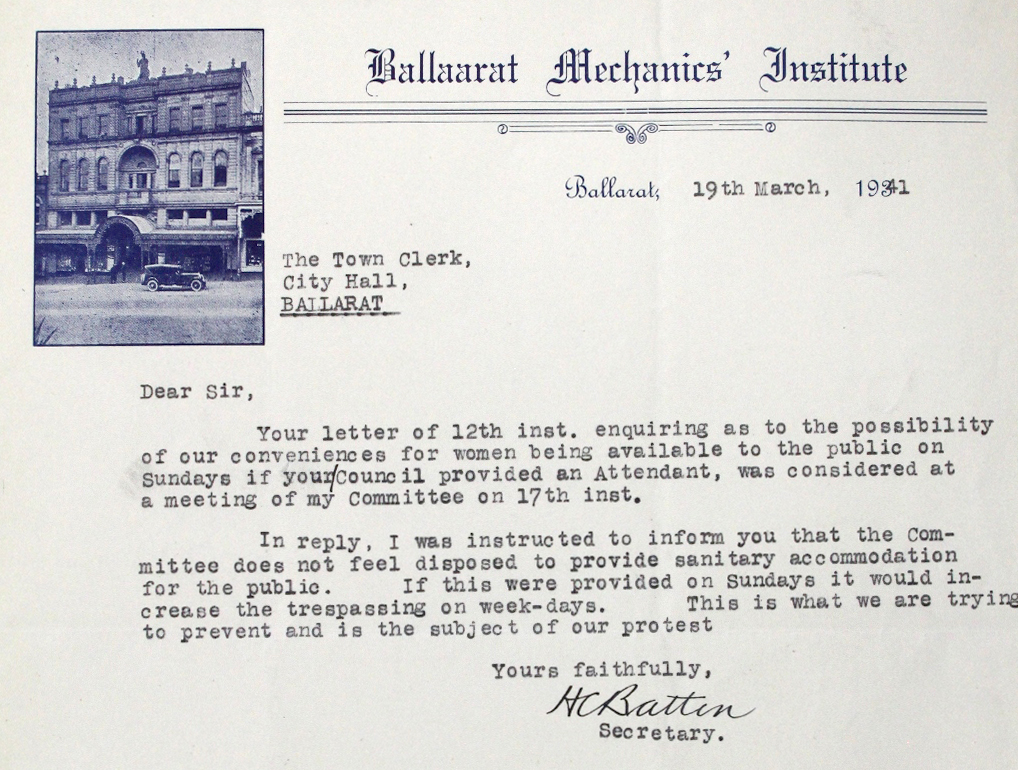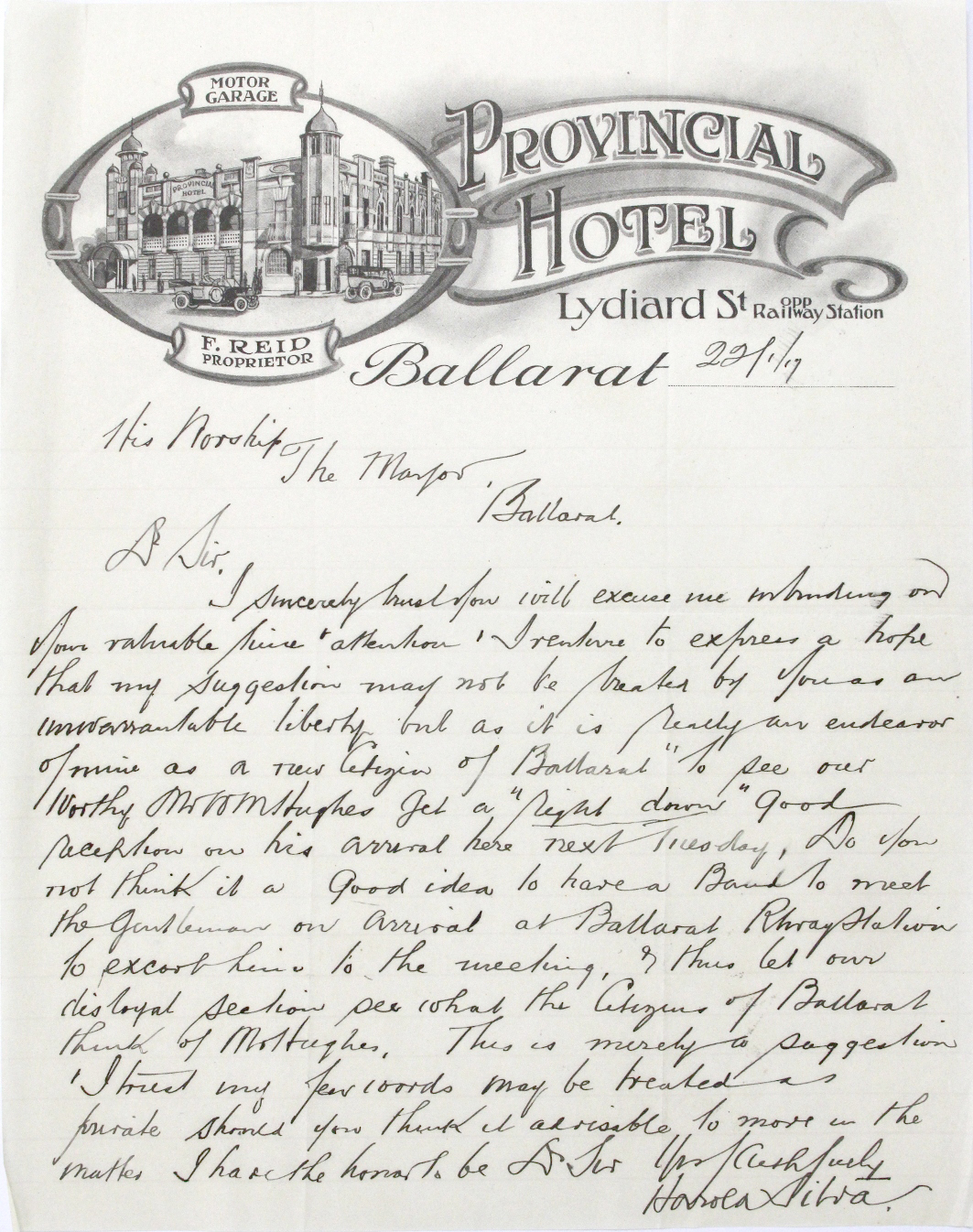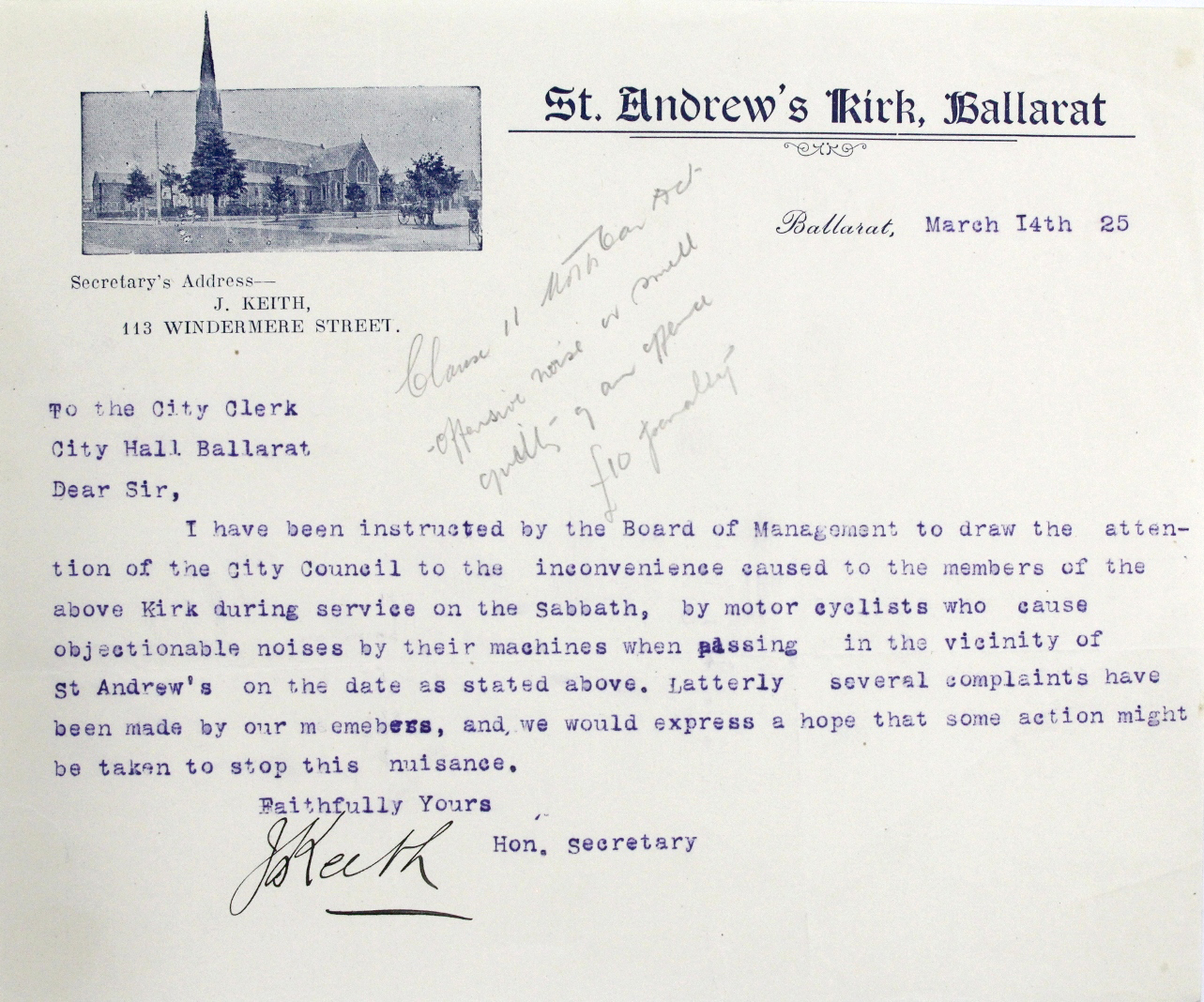
Author: Public Record Office Victoria
Letters in our archives are more than just words on a page – the correspondence as well as the images and logos contained in the letterhead provide an illuminating record of the past, whether it be events, attitudes or the built environment.
What’s in a letterhead?
In their recent Provenance article, ‘Paper ambassadors: letterheads and the iconography of urban modernity’, Andrew May, Stephen Banham and Chistine Eid state that letterhead design and symbolism can reveal the concerns of citizens, display the material culture of the city, and legitimate certain ideologies.
“A more comprehensive historical analysis of letterheads can only benefit the historian of the city in any attempt to develop a clearer understanding of the material culture, social relations and cultural aspirations of its inhabitants.”
Discovering Ballarat
These images of buildings in the Ballarat area are taken from letterheads found in VPRS 2500/P0 General Correspondence Files – from Ballarat (Municipal District 1855–1863; Borough 1863–1870; City 1870–1994).
Many of the images are in the form of illustrations - however some are actual photographs of buildings and could be a valuable resource to researchers seeking some form of pictorial record in cases where there may not be any other source available. The images can be dated, in most instances, according to the contents in the correspondence addressed to the council.

Transcript of letter, VPRS 2500/P0, Unit 187, Conveniences 1941
19th March, 1941
The Town Clerk
City Hall
Ballarat
Dear Sir
Your letter of 12th Inst. Enquiring as to the possibility of our convenience for women being available to the public on Sundays if your council provided an Attendant was considered at a meeting of my Committee on 17st inst.
In reply, I was instructed to inform you that the Committee does not feel disposed to provide sanitary accommodation for the public. If this were provided on Sundays it would increase the trespassing on week-days. This is what we are trying to prevent and is subject of our protest.
Yours faithfully,
HC Batten
Secretary

Transcript of letter, VPRS 2500/P0, Unit 110, Miscellaneous I-J
22/1/17
His Worship
The Mayor,
Ballarat
Dear sir
I sincerely trust you will excuse me intruding on your valuable time & attention. I venture to express a hope that my suggestion may not be treated by you as an insurmountable liberty but as it is really an endeavour of mine as a new Citizen of Ballarat to see our worthy Mr WM Hughes get a “right down” good reception on his arrival here next Tuesday. Do you not think it a good idea to have a Band to meet the gentleman on arrival at the Ballarat Railway Station to escort him to the meeting, & thus let our disloyal section see what the Citizens of Ballarat think of Mr. Hughes. This is merely a suggestion.
I trust my few words may be treated as private should you think it advisable to move in the matter
I have the honour to be Dear Sir yours faithfully
Harold Silva

Transcript of letter, VPRS 2500/P0, Unit 140, Miscellaneous Correspondence R-S 1925
Ballarat, March 14th 1925
Secretary’s Address-
- Keith
113 Windermere Street.
To the City Clerk
City Hall Ballarat
Dear Sir,
I have been instructed by the Board of Management to draw the attention of the City Council to the inconvenience caused to the members of the above Kirk during service on the Sabbath, by motor cyclists who cause objectionable noises by their machines when passing in the vicinity of St Andrew’s on the date as stated above. Latterly several complaints have been made by our members, and we would express a hope that some action might be taken to stop this nuisance.
Faithfully Yours
J Keith
Hon. Secretary
Post by Gertie from the Ballarat Archives Centre
